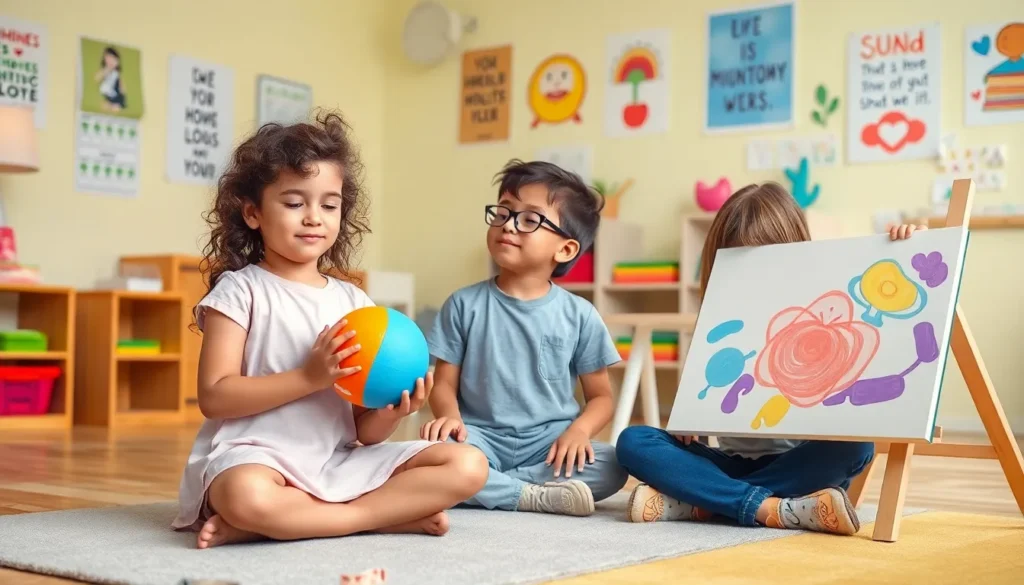Have you ever tried explaining the concept of mental health to a child? It can feel like juggling cats while riding a unicycle, tricky yet rewarding. But, understanding mental health is vital, particularly for young minds navigating the choppy waters of life. Let’s jump into what mental health means for kids in a way that’s relatable, helpful, and just a bit fun.
Table of Contents
ToggleWhat Is Mental Health?

Mental health refers to a person’s emotional, psychological, and social well-being. It encompasses how we think, feel, and act, influencing our ability to handle stress, relate to others, and make choices. For kids, it’s like the software running on a computer, good mental health means everything works smoothly, while poor mental health can lead to glitches or malfunctions. Think of it like a garden: with proper care, it flourishes: when neglected, weeds can take over.
Why Is Mental Health Important?
Mental health is crucial for kids as it lays the foundation for future well-being. It impacts how children behave in school, form friendships, and process emotions. Kids with strong mental health are more likely to bounce back from setbacks, while those struggling may face obstacles in daily life. They are like resilient trees, standing tall even though storms, whereas vulnerable trees might topple. Ensuring mental health is prioritized enables kids to thrive in various environments, whether it be home, school, or play.
Common Mental Health Concepts Kids Should Know
Understanding mental health involves recognizing a few key concepts. Here are some essential categories that kids should familiarize themselves with:
Signs of Good Mental Health
Signs of good mental health include feeling happy, enjoying social interactions, and having the ability to cope with stress. Kids might find joy in playing sports, drawing, or even helping friends. They have a positive outlook, feel capable of tackling challenges, and maintain good friendships, signifying robust mental well-being.
Signs of Poor Mental Health
On the flip side, signs of poor mental health can manifest as sadness, irritability, or withdrawal from enjoyable activities. Kids may experience frequent mood swings or struggle with concentration. Recognizing these signs can help in addressing issues before they escalate, ensuring the child gets the care they need.
How to Support Your Mental Health
Supporting mental health is like putting on your oxygen mask before helping others: it’s essential. Here are some effective strategies:
Activities to Boost Mental Well-Being
Engaging in physical activities is an excellent way for kids to support mental health. Whether it’s running around at the playground or practicing yoga, movement helps release those feel-good hormones called endorphins. Other activities can include creative outlets like drawing or writing stories, which allow children to express themselves. Mindfulness exercises, such as deep breathing or meditation, can also promote emotional regulation and focus.
When to Seek Help
Recognizing when to seek help is vital and can be tricky for kids. If feelings of sadness persist or disrupt daily activities, it might be time to talk to a trusted adult. Signs like sudden changes in behavior, excessive fear, or difficulty coping with stress usually indicate the need for professional support. It’s important for kids to understand that seeking help is a sign of strength, not weakness, much like asking for directions when lost.
Talking About Mental Health with Kids
Creating an open dialogue about mental health with kids is essential. Parents and educators should approach the topic in a straightforward, age-appropriate manner. Asking open-ended questions can help children express feelings and thoughts. Casual discussions about emotions during everyday activities can normalize the importance of mental well-being. Using relatable metaphors, like comparing mental health to physical health, can also aid in their understanding. This fosters a supportive atmosphere where children feel safe discussing their struggles.





